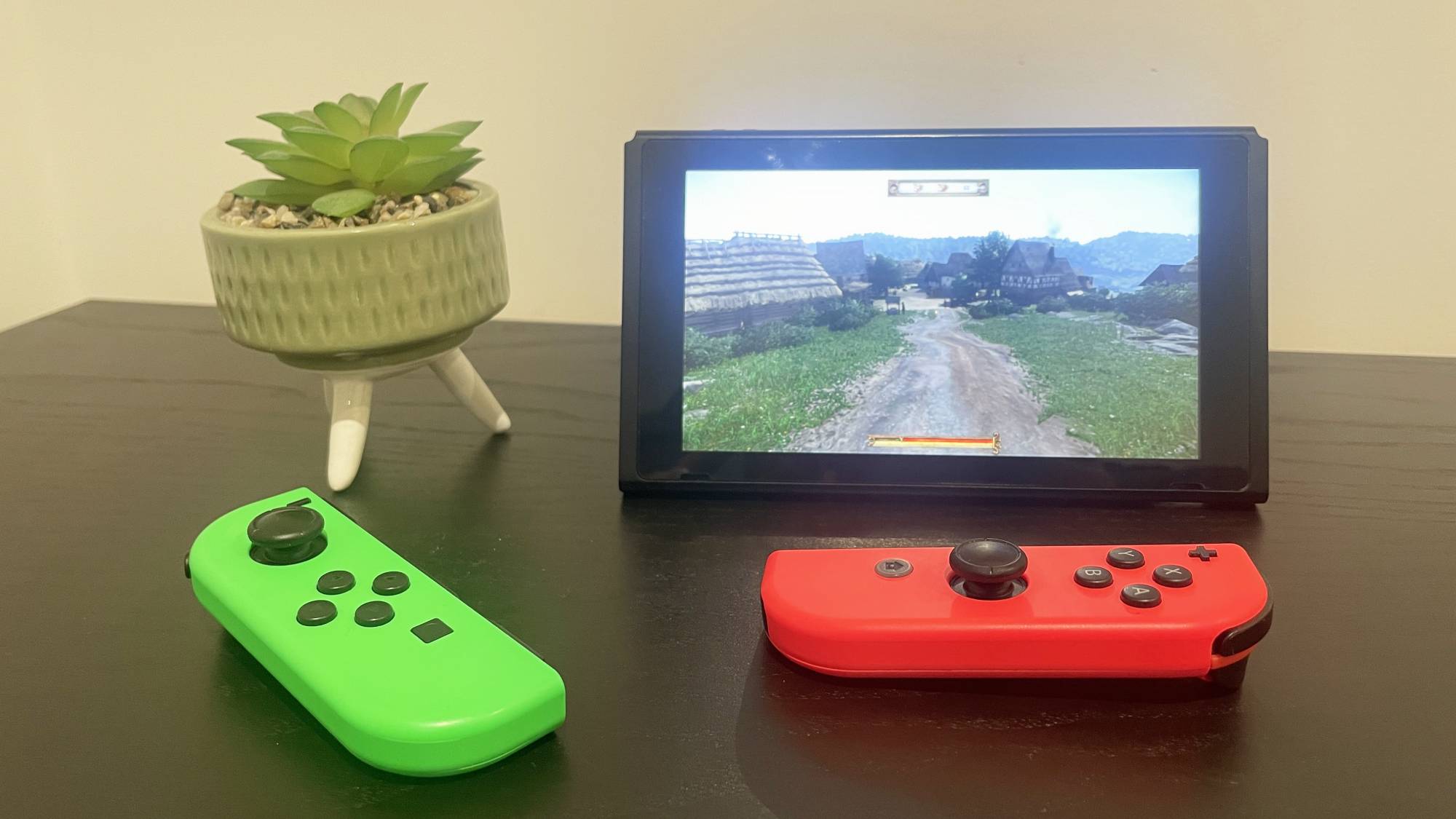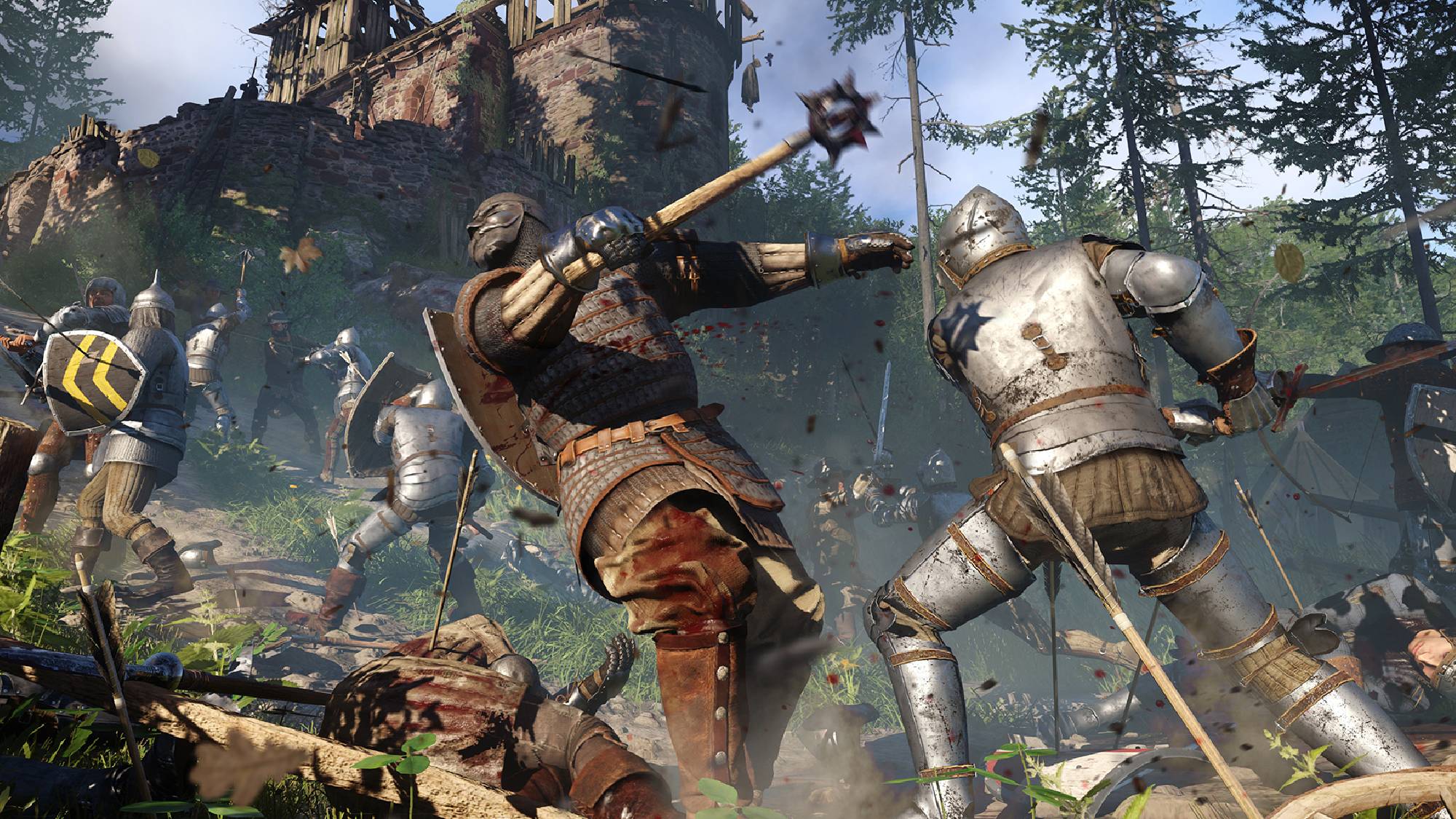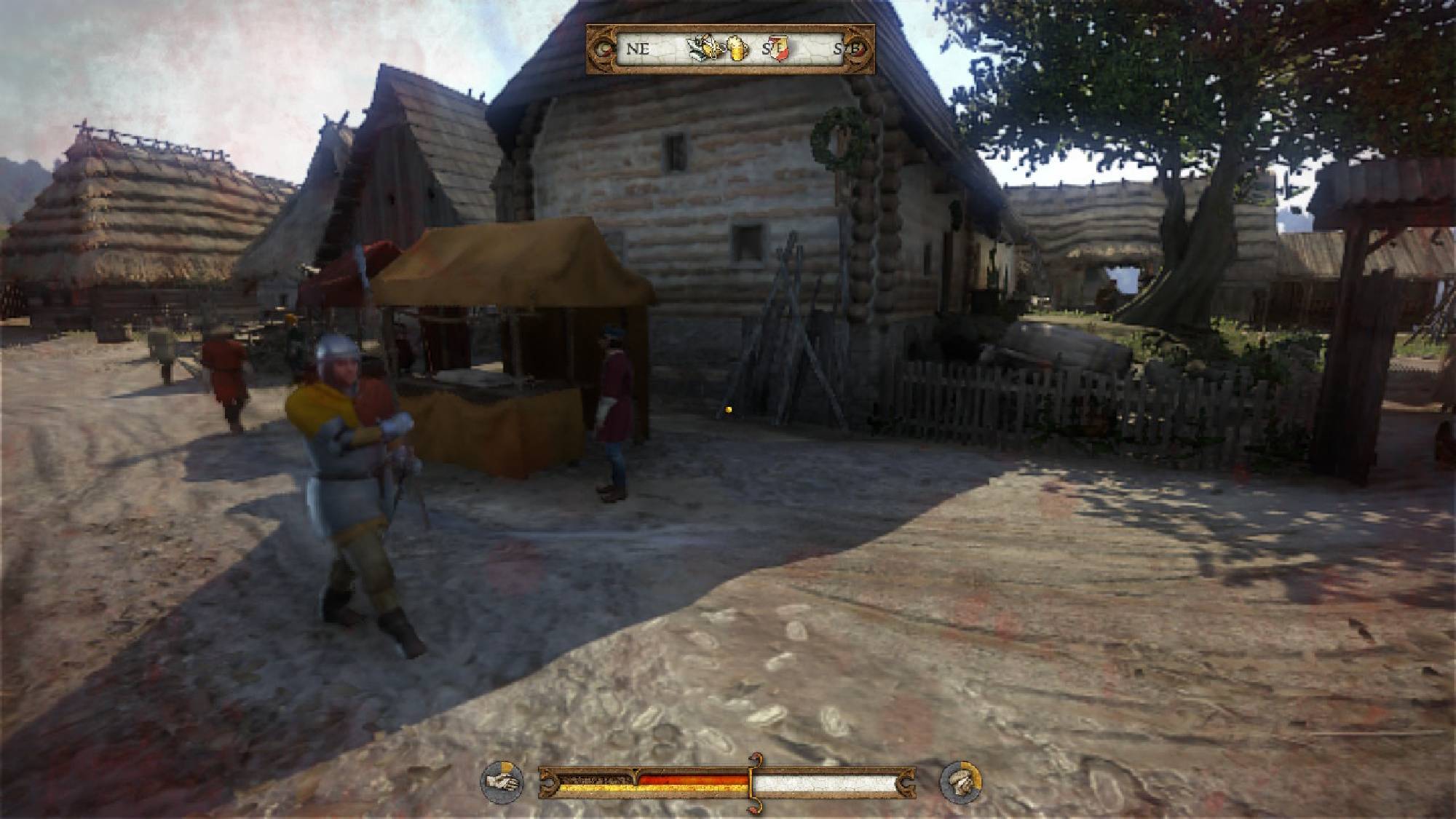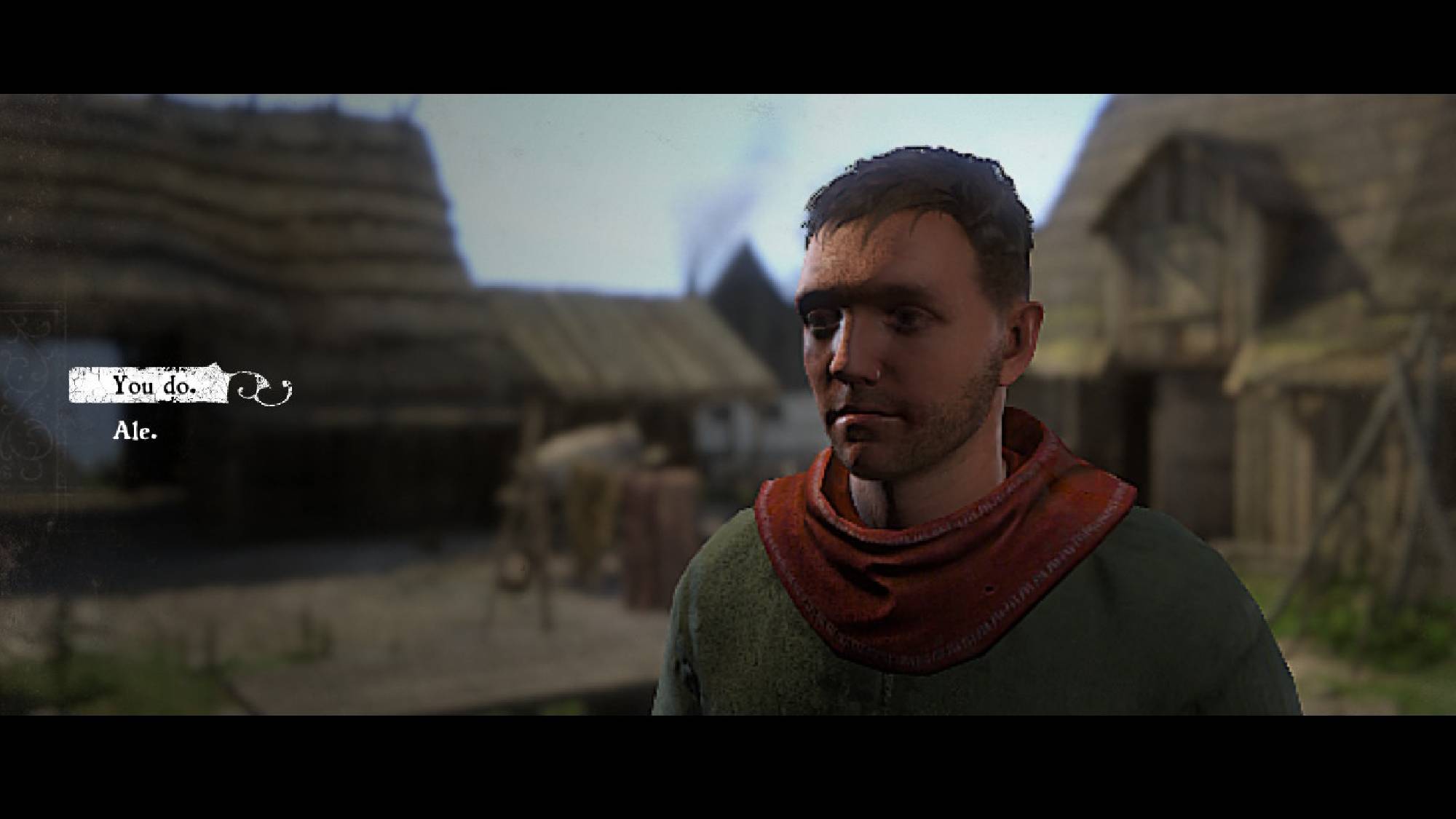
I’ll admit when I first heard that Kingdom Come Deliverance was being ported to the Nintendo Switch, I was pretty dismissive.
I assumed Kingdom Come on Switch would be a disastrous version of a game that I have a real fondness for. In fact, a part of me wondered if the port would ever actually see the light of day, or if it might be quietly canceled instead after the scale of the technical challenge proved too great for port studio Saber Interactive.
Then in a Nintendo Direct event last month, after more than two years of silence on the port’s progress, I was surprised to see Kingdom Come Deliverance appear in a sizzle reel, with a confirmed release date, too (March 15). The brief footage showcased looked reasonable enough to my eyes, but my skepticism was still high.
Having now had the chance to play Kingdom Come Deliverance on Nintendo Switch for myself. I’m genuinely impressed by this port. There are significant cutbacks made to fit the sprawling RPG onto a system that is still rocking a nine-year-old Nvidia Tegra X1 chip, but it’s an entirely playable version of a must-play title.
I'm delighted to say that Kingdom Come Deliverance on Nintendo Switch ranks alongside The Witcher 3: Wild Hunt and Doom Eternal as “impossible ports” that have somehow become a reality. Even if it's technically the worst way to play it.
My history with Kingdom Come Deliverance
I first played Kingdom Come Deliverance when it launched in February 2018. But found myself getting increasingly frustrated with the game’s janky gameplay, slow-paced prologue and the litany of launch glitches. After only a few hours, I gave up when I encountered a progress-blocking bug that forced me to start over again.
A couple of years later, in the spring of 2020, I decided to give the game a second chance, and everything clicked into place. Over the next few days, I sank more than 50 hours into the RPG (like many people I had a lot of free time in 2020), and during a pretty miserable time, Kingdom Come Deliverance served as a welcome escape from daily reality.

I came to love its grounded and (mostly) historically accurate story, which tells of a humble peasant named Henry in 15th-century Bohemia, and I started to appreciate its more realistic gameplay that requires you to perform such mundane tasks as keeping your stomach full and taking regular baths to avoid stinking so much that nobody will want to talk to you.
It’s a game I’ve yearned to replay over the last few years. So, its Nintendo Switch release seemed the perfect excuse, but when factoring in that my playthrough on a PS4 Pro — a console significantly more powerful than the Switch — was slightly tarnished by persistent technical issues and a stuttering framerate, my hopes of a playable port were pretty low.
Kingdom Come on Switch is an achievement

If you’re unfamiliar with the game, Kingdom Come Deliverance is a massive RPG that offers you complete freedom to explore its beautifully rendered open-world bursting with rolling hills, dense forests and rushing rivers. As noted, even on PS4 Pro and Xbox Series X, the game was notorious for performance hiccups, so it’s pretty incredible it’s now available on the comparatively underpowered Nintendo Switch.
The Switch version offers the entire game, without any comprises. All the base content, and every piece of post-launch DLC including several decently sized expansion packs, are included. That's a whole lot of game to play anywhere.
I assumed like Hogwart Legacy’s Switch port, fresh loading screens would be inserted all over the place, but much to my delight after three hours of play, I’ve not encountered any new instances where the game forces to you stare at a loading screen.

As you would expect, the framerate is not locked to 30 fps. Even when merely wandering around the starting town of Skalitz, drops are common. When I visited my sword instructor for a lesson in melee combat, the framerate struggled even more. But, thankfully, Kingdom Come Deliverance never crosses into unplayable territory.
To get a framerate that can even touch 30 fps on occasion Saber Interactive had to make huge cuts to image resolution and draw-distance. As you can see in the comparison below, objects in the far distance are a blurry mess, and as you approach new areas, you’ll notice a huge amount of pop-in as environmental textures load and NPCs spawn right in front of you. Character models are also heavily impacted, with close ups in dialogue exchanges looking especially rough.
Even with all these visual sacrifices, and the far-from-stable performance, I still think it’s remarkable that Kingdom Come has arrived on the Nintendo Switch in a state that is very much playable. And thanks to the game’s strong art direction, which accurately recreates 15th-century Bohemia, it’s still capable of looking visually pleasing under the right conditions.
Kingdom Come is worth experiencing on Switch
If you have the option of playing Kingdom Come Deliverance on a PlayStation or Xbox, or better still, one of the best gaming PCs, then you will undoubtedly get a superior experience. But if the Nintendo Switch is your only option, then this port unquestionably gets the job done.
You will need to tolerate poor draw distances, blurry textures and an inconsistent framerate, but unless you’re very picky about visual fidelity (and if you are, why are you playing on Nintendo Switch?), then all the good things about Kingdom Come Deliverance outshine the many cutbacks that have been made to get this game running on seven-year-old hardware.
The Switch also comes with the advantage of portable play, a significant boon, even if Kingdom Come is perhaps not the most naturally suited game to being played in shorter bursts. This impressive port shows how more creative developers can masterfully keep on top of the Nintendo Switch’s hardware limitations, managing to squeeze every last drop of performance from its now aging tech.
Unsurprisingly, Kingdom Come Deliverance on Nintendo Switch is not the best way to experience this cult classic game, but it is a viable option, and that’s a lot more than I was expecting when it was first announced.







